Are you fit?
In this article I am looking at the key question ‘Am I fit to use the gym?’ You can download and print this article. Click here.
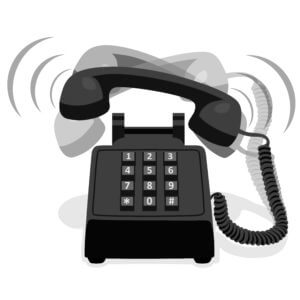 It is important for you to know a bit about fitness and who to go to. But we must also know what we look out for. In this article, I am going to talk about your heart, lungs, and kidneys. Medicine is complicated and that is why doctors train for many years. Most conditions can be treated and it is important even during the Covid-19 period to contact your GP if you have health concerns. Practices are still accessible. If you are not familiar with the system then listen to the options on the telephone. Going through a list is frustrating, but then at least you can focus on your need. Here is a link to the NHS.
It is important for you to know a bit about fitness and who to go to. But we must also know what we look out for. In this article, I am going to talk about your heart, lungs, and kidneys. Medicine is complicated and that is why doctors train for many years. Most conditions can be treated and it is important even during the Covid-19 period to contact your GP if you have health concerns. Practices are still accessible. If you are not familiar with the system then listen to the options on the telephone. Going through a list is frustrating, but then at least you can focus on your need. Here is a link to the NHS.
A word of warning click here

Let’s get down to the nitty-gritty
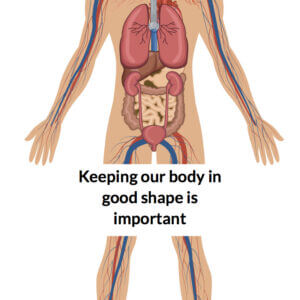
Breathing
Puff equals lungs plus heart. Blowing harder can be painful. Try the stairs or a hill. If you are finding it hard going then there are three things you need to consider.
- you don’t exercise much
- you are carrying too much weight
- Your physical fitness is affected by a medical problem
Ideally, I would hope it is for the first reason but no one can avoid the recent press about Covid-19 and obesity. We don’t want to become obese but even carrying an extra stone (14 pounds) or 6.4Kg can make a difference. Going to a gym to exercise needs a bit of responsibility. Look at your family history to see if anyone had a medical problem. Worse still has anyone has died because of a medical problem? We have heart valve problems in my family. I had my GP check my heart. You never know and once you get past 40 years of age you are into the cardiac territory. Even slim and fit people drop down dead!
Smoking
If you are reading this you already know this is not a good idea. Smokers in their teens can still perform well. Of course, they think that they are invincible. They look at us oldies with contempt! Long term smokers will do damage to their lungs and we know when Covid-19 hit any lung disease brings high risk. Look at this link which is an NHS site and you will be amazed at the effects and benefits when stopping.
What needs checking?
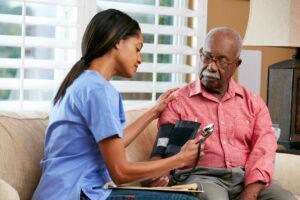
monkey business images/Shutterstock.com
We can’t see the heart but we can feel it. Those four valves make a sound and we like to hear that lup- dup noise. This is a rhythm. Pulse rate is important, that’s how many times the heartbeats. If it is racing away much faster than normal then the big question is why? Modern gismos like Fitbits and the like monitor our pulse rates. A heart should not be fast at rest. Seasoned runners and some people have low pulses down as low as 40-50. A pulse may vary but over 70 at rest then seek advice before going to the gym for the workout for the first time.
Blood pressure
Blood pressure (BP) is a great way to check our health. The heart is a pump and so it forces the blood around the body. It needs to be pretty high to do this. This is called systolic pressure. This value is the higher value of the 2 measurements. The heart relaxes for a bit and the pressure drops and so there is a second pressure. This is called diastolic pressure. If we know both pressure values we can say something about your status. 120/60 is the value we learn in training, but it is not as simple as that. We prefer to use ranges. At 64 my pressure was 141/88 at 8.30 this morning when I had walked upstairs and down. The pulse was 60. I went to the gym for a 45-minute work at 9.15 am and remeasured my BP at 124/85 with a pulse of 68. So exercises modify the blood pressure and push the heart rate (pulse) up.
The heart has three conditions that would not be good for exercise if these went undiagnosed.
- Blood flow to the heart (coronary artery supply blocked)
- The valves are sticking and not allowing the flow
- The electrical timing is not right
Chest pains during exercise suggest angina. Valves not working will soon make you short of breath and electrical timing will affect your pulse rate. Trying to simplify these conditions is not easy but I want to give you an overview. Hearts need more blood and electrical conduction to make them work. We have dedicated hormones and sensors all around our body. The kidneys play a vital role in maintaining fluid balance and blood pressure. This paints a complex series of interrelated working parts of the body. In my job flow to the limb and feet are vital and it all starts with the heart.
Using your own blood pressure measuring equipment
You can buy pressure measuring equipment from the internet or your pharmacy. It is accessible and now digital so you don’t need a stethoscope. Here are a few tips. Home equipment is not tested regularly and may be inaccurate. If you keep using the pressure cuff, trying to improve your blood pressure, you will become over-anxious. Try to test it at the same time each day. You are looking for trends only. Only a trained medical professional should interpret blood pressure. He or she will also be looking to see what is normal for you. Values vary between ethnic groups, men and women and those who are active or in high-stress occupations.
What about our lungs
These two big chest bags need blood to pass through them so they can exchange vital oxygen and expel carbon dioxide. The heart is connected intimately with the lungs. If you have bad lungs then your heart can be strained. The heart muscle is overworked. Diseases of the lungs whilst once rare have re-emerged such as tuberculosis. Covid-19 likes to kill people with bad lungs and hearts. You might think this statement scaremongering, but the Office for National Statistics says otherwise. Asthma, smoking damage, as well as those with other forms of lung disease, will need counselling before exercising. Asthma however can benefit immensely from exercise.
Kidneys
Kidneys act as a filter preventing you from losing essential chemicals within the blood. They work to keep your blood pressure normalised by ensuring the correct balance of salts. Excessive water if not shifted could end up in the lungs. You can test your urine which is mainly made up of water. When we use the toilet we can gauge how concentrated our urine is. Ideally, it should be clear and not murky or smell when fresh. Drinking water regularly will ensure this stays clear. As we warm up our body retains water normally and the urine darkens. If we exercise we need to avoid too much loss of water and so it is good to keep a flask of water with us when active. Filtered tap water is fine so please don’t add to the plastic wastage, please! If your kidneys fail to do the right job, the filter starts to fail and blood pressure can rise. Equally, high blood pressure can damage your kidneys. You can read more here about kidneys.
Weight Gain or loss
Big swings in weight are not good and can in fact damage your kidneys. This is why dieting is not ideal and one should exercise and have a balanced diet. Balanced diets mean exactly that. Taking in useful calories which includes fish, low-fat meats (if you like meat), vegetables and fruit are important. Reducing sugar is a must as well as avoiding those bad fats. We rarely need vitamins if we have a diet that is balanced. Alcohol should be kept to small amounts and binge drinking avoided so the liver is not damaged. Smoking keeps weight down as it suppresses our appetite. But as we know, smoking damages the lungs and blood vessels and affects our immunity.
Bowels & water intake
My fascination with the ascending and descending colon and ileum (small bowel) came from school biology as did my passion for kidney function. As you reach the age of 60 (sometimes 55) you will receive a poo kit to check for bowel cancer. It is not a guarantee but it gives us a chance to help those with this common disease. But what of exercise? Should this stop us? Well, the two swing variations are constipation and diarrhoea. The latter really needs to be looked into as you cannot afford to lose weight or fluids. Some food will loosen you up but generally, we want to stay on the soft side of hard! The large bowel and the colon reabsorbs water and for those exercising we pump water out through the skin as sweat and through our lungs as vapour. Moreover, if you sweat out the water you will increase the chances of constipation, dehydrate and this could affect body functions. Avoid laxatives unless they are natural. Add roughage to your diet. Drink plenty of water throughout the day and more if you have to strain those bowel movements. Blood from haemorrhoids is one unsavoury problem as these little varicose veins are torn with firm stools. The good news is that exercise helps you poo better and moves the bowel assisting it with moving waster out.
Exercise is good for you
If you feel you have pain in the chest after pushing yourself don’t worry chances are you are fine. The heart and lungs adjust and tightness in us oldies is due to infrequent walking up hills and increasing the pace. A good blast out twice a week is valuable and does not just keep your body trim but helps the mind. The so-called runner’s high is a real feature of nerve chemicals called endorphins. It does not take long before your passion for the gym becomes a way of life and need.
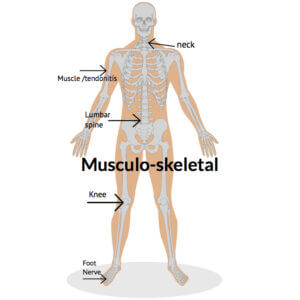
my own musculoskeletal problems at 60+
Thanks for reading this article ‘Am I fit to Use the Gym.’ by David R Tollafield.
Sign-up for here my regular FREE newsfeed
Why not read Foot Health Myths Facts & Fables available from Amazon books
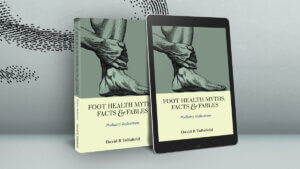
Published by Busypencilcase Communications Est. 2015 for ConsultingFootPain

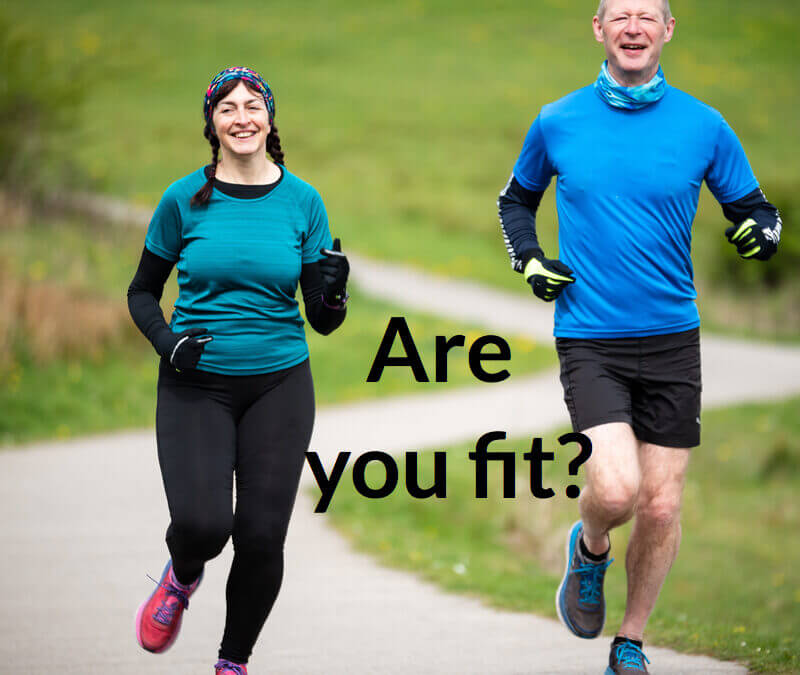

Recent Comments